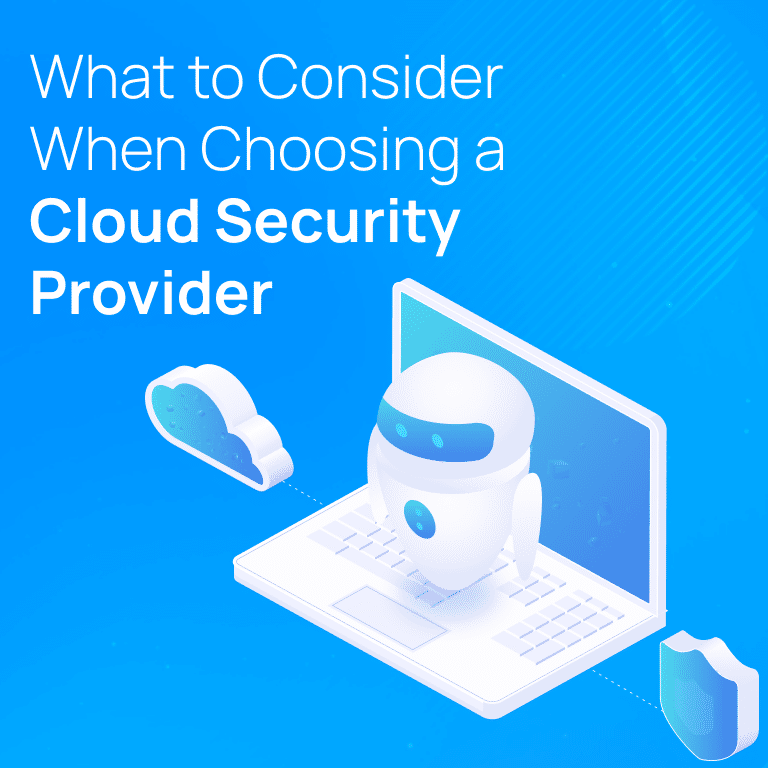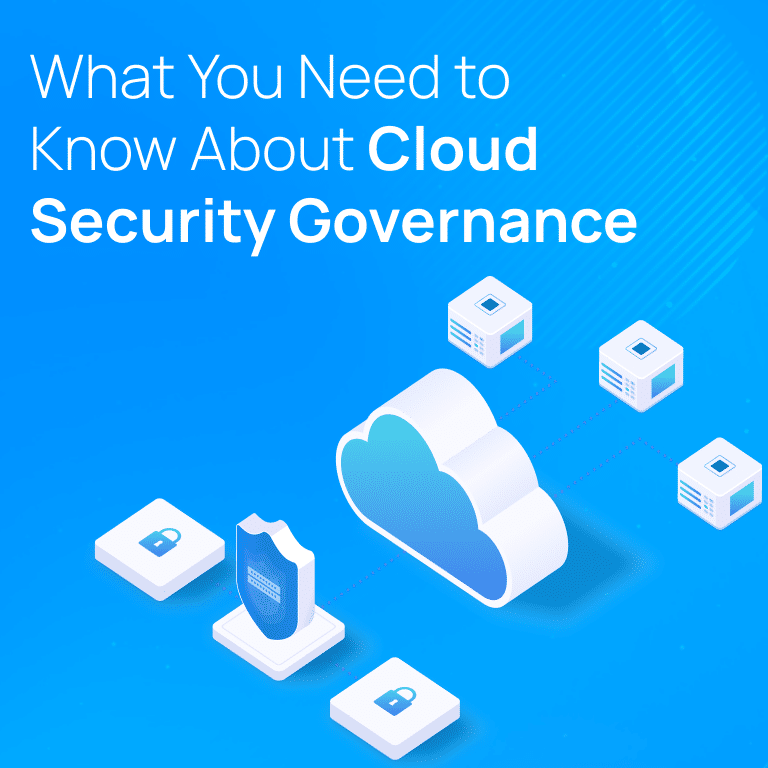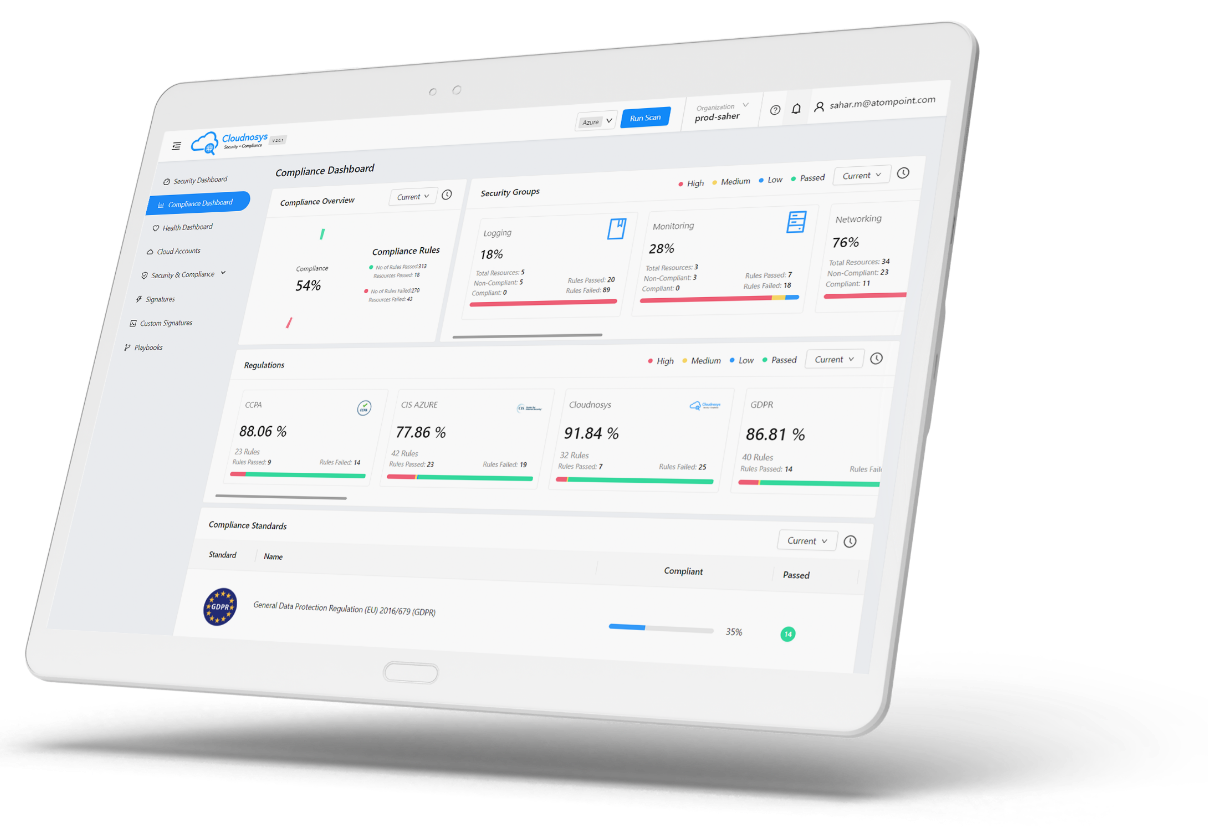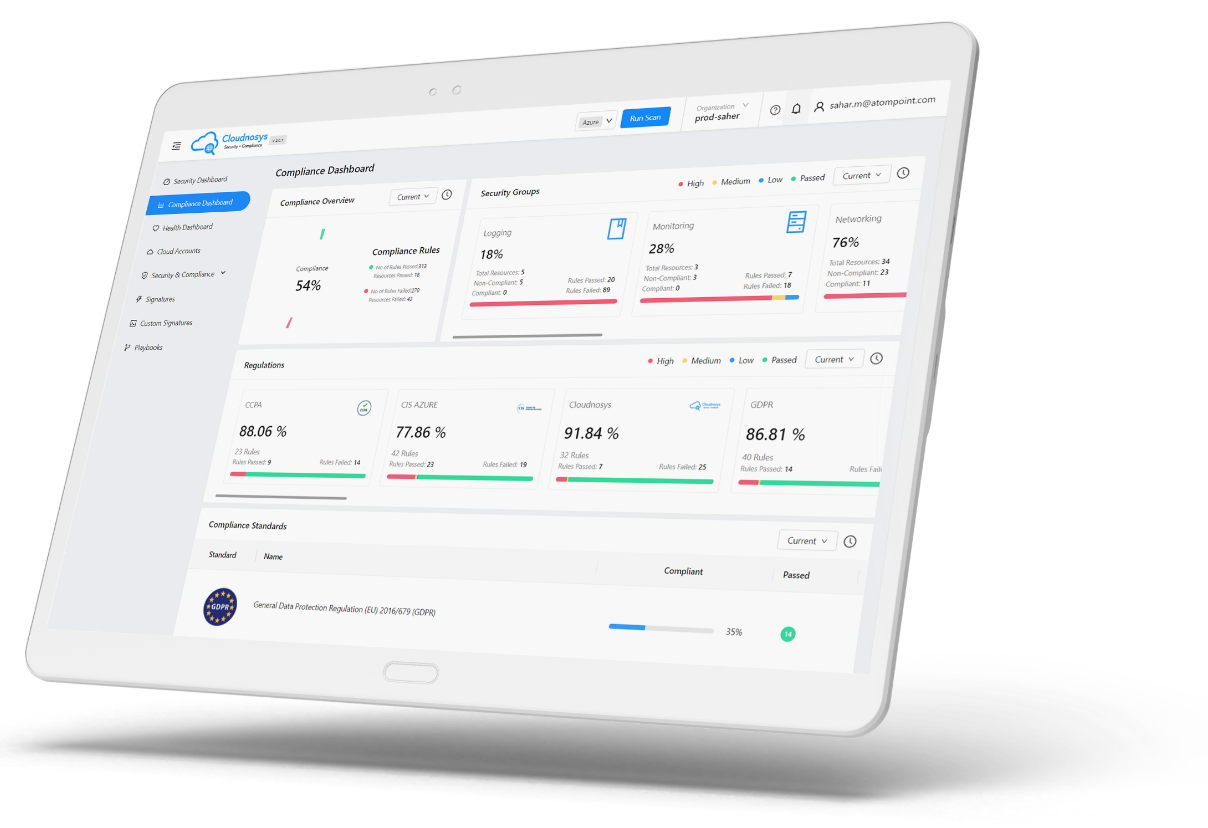In today’s digital age, businesses of all sizes rely heavily on cloud computing. With this reliance comes the pressing need for enhanced cloud security. While cloud security platforms are primarily known for safeguarding data from cyber threats, they also play a significant role in improving operational efficiency. These platforms automate key tasks, reduce manual processes, streamline compliance, and help businesses allocate resources effectively, leading to smoother operations and cost savings. In this blog post, we’ll dive deep into how cloud security platforms help businesses become more efficient while ensuring their data remains secure.
What are Cloud Security Platforms?
A cloud security platform is a comprehensive solution that offers security services to protect cloud-based systems, applications, and data from threats. These platforms provide features like:
- Vulnerability Management
- Malware protection
- Cloud Security Posture Management
- SOAR
- Identity and Access Management (IAM)
- Firewalls
- Encryption
- Intrusion Detection Systems (IDS)
- Compliance Monitoring
- Data Loss Prevention (DLP)
But beyond these security measures, cloud security platforms are also vital for operational improvements, helping organizations automate security tasks, manage resources efficiently, and reduce overhead costs.

The Connection Between Security and Efficiency
When organizations implement cloud security platforms, the primary goal is usually to protect sensitive information. However, the ripple effect of this protection is increased operational efficiency. Efficient cloud security leads to fewer disruptions, better resource utilization, and faster workflows. Here are some of the key benefits:
- Automation of Security Tasks: Automating repetitive security tasks saves time and ensures consistent performance.
- Centralized Management: Cloud security platforms offer a single interface for monitoring and managing multiple cloud environments.
- Optimized Resource Allocation: By tracking resource usage and preventing over-provisioning, these platforms reduce waste and save costs.
- Scalability: These platforms grow with the business, offering seamless scalability while maintaining robust security.
Key Ways Cloud Security Platforms Boost Operational Efficiency
1. Automation of Security Tasks
One of the primary advantages of cloud security platforms is the ability to automate various security tasks, reducing the workload for IT teams:
- Automated Threat Detection: Platforms like Security Information and Event Management (SIEM) tools automatically monitor and identify unusual activities in real time. This enables organizations to respond more swiftly to potential threats.
- Incident Response Automation: Cloud security platforms can automate incident responses, such as isolating a compromised system or blocking a suspicious IP address, allowing businesses to handle security events more efficiently.
- Automated Compliance Reporting: Meeting regulatory standards can be a labor-intensive process. Many cloud security platforms generate automated compliance reports for frameworks like GDPR, HIPAA, and PCI DSS, reducing manual effort.
By automating these tasks, businesses not only enhance security but also save time and reduce operational costs.
2. Centralized Management of Multi-Cloud Environments
Managing security across multiple cloud platforms like AWS, Google Cloud, and Microsoft Azure can be complex. Cloud security platforms simplify this with centralized management tools:
- Single Dashboard: A unified interface allows admins to monitor security policies, configurations, and incidents across all cloud environments.
- Consistent Policy Enforcement: By using a cloud security platform, organizations can ensure that the same security policies apply to all systems, avoiding discrepancies between environments.
- Real-time Monitoring: Cloud security platforms provide real-time visibility across all your cloud assets, enabling faster decision-making and reducing downtime caused by security issues.
This centralized approach reduces complexity and allows IT teams to focus on core business functions rather than juggling multiple security systems.
3. Optimized Resource Utilization and Cost Management
Cloud security platforms not only ensure security but also enhance resource management. Features like cloud workload protection and network traffic monitoring enable organizations to optimize their resource use. This leads to:
- Better Allocation of Cloud Resources: By monitoring traffic and workloads, platforms ensure resources are not over-allocated or underutilized, improving overall cloud performance.
- Cost Savings: Security platforms can identify unused resources, optimize data storage, and help organizations manage cloud spending more effectively, leading to lower operational costs.
By optimizing how cloud resources are used, businesses can significantly reduce their cloud expenditure while maintaining high levels of performance and security.
4. Faster Incident Resolution and Reduced Downtime
Downtime can have devastating effects on business operations. Cloud security platforms help minimize this through rapid incident detection and response:
- Real-time Alerts: Platforms offer instant alerts when suspicious activity is detected, allowing teams to respond quickly and prevent further damage.
- Automated Incident Resolution: Some advanced platforms resolve minor incidents without human intervention, freeing up IT resources for more complex tasks.
- Reduced Recovery Time: By using automated backups and disaster recovery features, cloud security platforms reduce the recovery time needed after a security incident.
By speeding up response times and automating incident resolution, businesses can ensure that security threats do not interrupt their operations.
5. Streamlined Compliance and Simplified Auditing
Compliance is a critical factor for businesses operating in highly regulated industries. Cloud security platforms help companies meet industry standards through features like:
- Automated Compliance Checks: Platforms continuously monitor cloud environments to ensure compliance with data protection laws and regulations like GDPR, HIPAA, and CCPA.
- Audit Trails: Cloud security platforms provide detailed logs and reports that make it easy to audit user activity, resource usage, and security incidents. These audit trails ensure transparency and simplify compliance audits.
By reducing the manual effort required to ensure compliance, businesses save both time and money while minimizing the risk of regulatory fines.
6. Collaboration Across Teams
Cloud security platforms support cross-team collaboration, enabling better communication between security, development, and operations teams:
- Role-Based Access Control (RBAC): Using RBAC ensures that each team has the appropriate level of access to security data without compromising the security of other resources.
- Integrated Communication Tools: Some platforms come with built-in collaboration tools that help teams work together in real time, especially during security incidents.
Improved collaboration enables faster decision-making and more efficient workflows, enhancing overall business operations.
7. Scalability Without Compromising Security
As businesses grow, their cloud environments must scale to accommodate new users, applications, and workloads. Cloud security platforms offer scalable security solutions:
- Dynamic Scaling: These platforms automatically adjust security measures as cloud environments expand, ensuring that security protocols grow with the business.
- Policy Replication: Organizations can replicate security policies across new instances and environments without additional manual configuration.
By providing scalable solutions, cloud security platforms ensure that businesses can grow without compromising on security or efficiency.
AI and Machine Learning Enhancements in Cloud Security
Modern cloud security platforms increasingly rely on AI and machine learning to drive efficiency. These advanced technologies enable:
- Predictive Threat Detection: AI-powered platforms can analyze patterns and predict potential security threats, allowing businesses to take preemptive actions.
- Automated Threat Analysis: Machine learning algorithms can automatically identify and classify threats based on past incidents, improving response times and reducing the need for manual intervention.
These innovations make cloud security platforms smarter and more capable of boosting operational efficiency while offering superior protection.
Conclusion
Cloud security platforms are not just about protecting data — they are crucial tools for enhancing operational efficiency. By automating tasks, centralizing management, optimizing resources, and streamlining compliance, businesses can reduce costs and improve productivity. In a world where digital transformation is key to staying competitive, implementing a comprehensive cloud security platform is essential for success.
Try Cloudnosys!
Looking to boost your operational efficiency and secure your cloud infrastructure? Contact us today to explore how cloud security platforms can transform your business operations and enhance your security posture.










